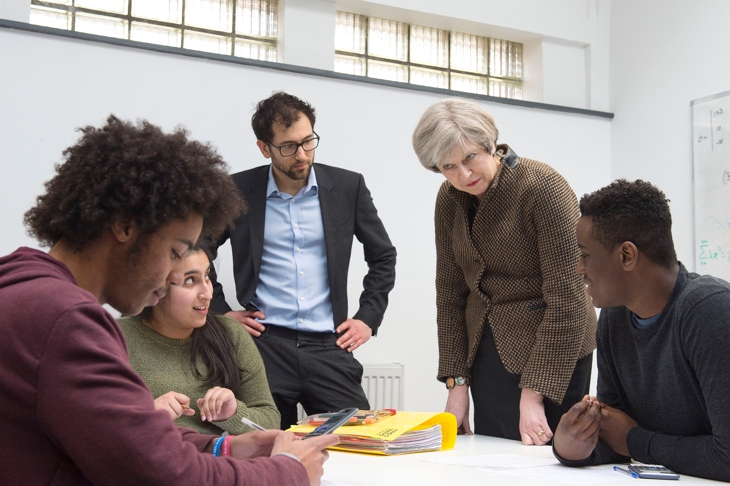Mrs May has blundered into a minefield of uncertainties that call for careful, honest, and fearless study. She has declared war on civil servants and teachers, threatening that there is ‘nowhere to hide’ from her righteous indignation. But in truth this campaign against injustice is an onslaught on statistical variance. If you pick two groups defined by a characteristic such as race that has no direct connection with outcomes such as the attainment of educational qualifications, you will inevitably find differences. Her mistake is to assume that there is a causal connection between race and outcomes, when often there is none.
Focusing on racial disparities also ignores that fact that for many years now there has been discrimination in favour of ethnic minorities in recruitment to the civil service. The Home Office, for example, was first given a recruitment target by the Blair Government. Its first ‘milestone’ was for 2004, when the prison, probation, passport and immigration services all exceeded their target of 25 percent. They had achieved 38 percent from ethnic minorities. The trouble is that if one organisation takes so many ethnic minority members, then it does not leave enough for other organisations to recruit their proportionate share. And yet, if they fail to meet their target they are in danger of being condemned as discriminators who will be given ‘nowhere to hide’.
Mrs May’s campaign is an example of a vote-winning strategy based on ‘political positioning’ instead of problem solving. She has discerned that the Labour party scores high in opinion polls for compassion and she wants it to be known that she cares about injustice so much that she is prepared to damage the reputation of her own country to improve her own image. But someone who genuinely wanted, for instance, black Caribbean boys to achieve more in school would not blame their teachers. Instead, they would focus on the real underlying cause, which is often the higher incidence of children being raised with no father in the house and the gang culture that has sometimes emerged as a substitute for absent fathers. Such problems are hard to fix and it’s much easier to speechify about discrimination and adopt a strident tone as proof of compassion.
Instead of feeding the identity culture with misleading statistics and giving prime ministerial legitimacy to non-existent grievances, the government should renew its commitment to our common humanity and ensure that it has done everything in its power to give all of us a fighting chance of success. The reality is that people of all races and backgrounds have succeeded in Britain. If you have a bit of ability and you work hard, you have every chance of doing well. That, after all, is why so many immigrants want to live here.
David Green is CEO of Civitas






Comments